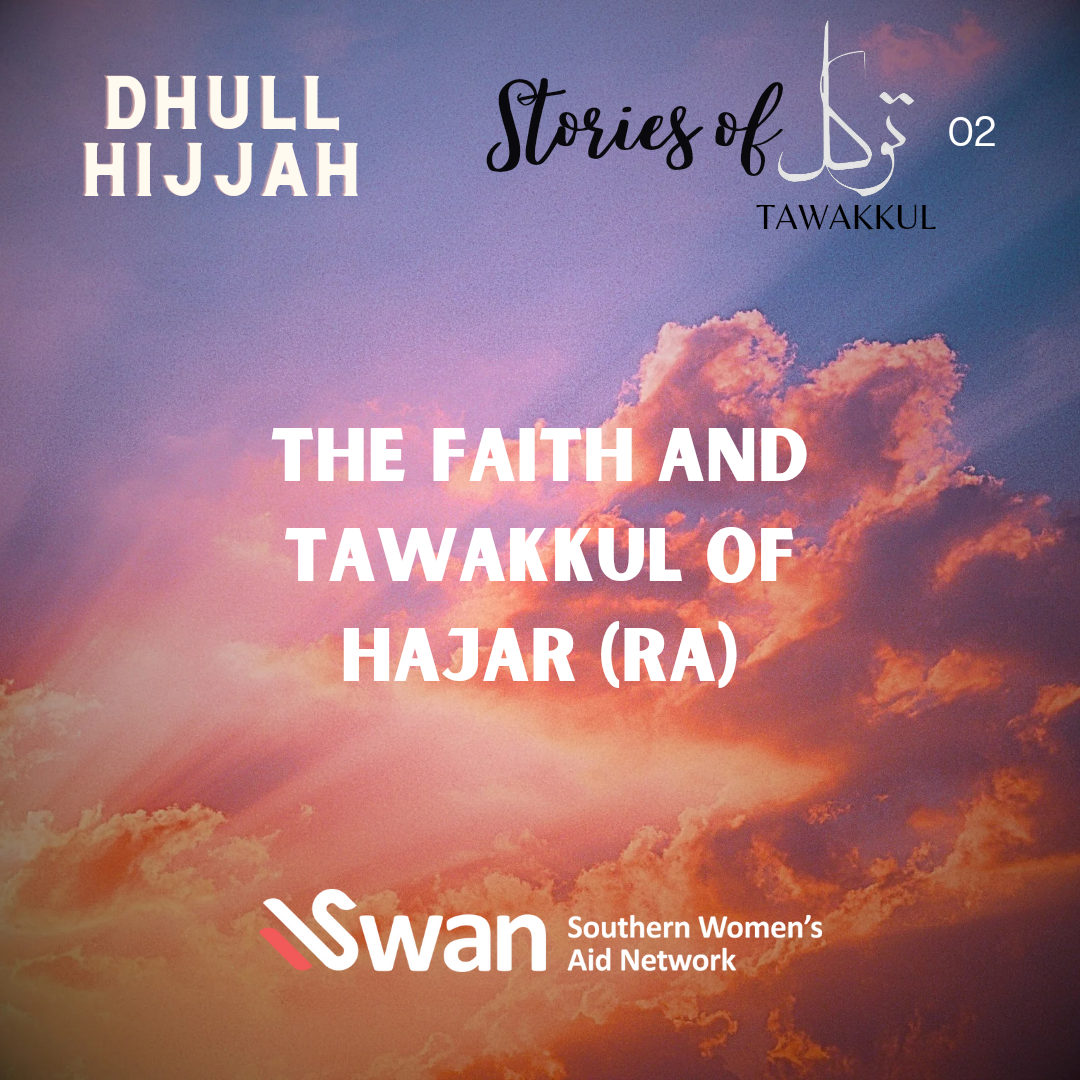Our Blogs

Stories of Tawakkul: The Faith and Tawakkul of Hajar RA
Hajar Radiyallahu ′Anha (RA) was the wife of Prophet Ibrahim Alayhi Al-Salam (AS) and the mother of Prophet Ismail. Her story is one of faith and perseverance and holds a vital place in Islamic history as it is commemorated in both Hajj and Umrah.
In these times where we see women and children struggling across the globe, her story serves as a strong reminder that after hardship comes ease. So let us reflect on this story of Tawakkul.
We learn this story from the hadith recorded in Sahih Bukhari; Prophet Ibrahim (AS) was commanded by Allah to leave Hajar and their infant son, Ismail, in the barren valley of Makkah. This is alluded to in the Quran:
"Our Lord, I have settled some of my descendants in an uncultivated valley near Your sacred House, our Lord, that they may establish prayer. So make hearts among the people incline toward them and provide for them from the fruits that they might be grateful." (Quran 14:37)
Reading through this story instills extreme awe as we read that as Hajar called out to her husband numerous times in confusion but as soon as he affirmed that he had been instructed by Allah to leave her and their baby Ismail in this barren valley, she accepted the decree without complaint or question. Imagine the emotional turmoil she must have felt, left alone in a desolate land with her infant, yet her unwavering trust in Allah allowed her to accept her Allah's decree.
Hajar's struggle to find water for her son, who was dependent on her for milk and nourishment, is symbolized by her running between the hills of Safa and Marwa and detailed in hadith and, as aforementioned, commemorated in Hajj. The Quran mentions these hills and the significance of Safa and Marwa:
"Indeed, ˹the hills of˺ Ṣafa and Marwah1 are among the symbols of Allah. So whoever makes the major or minor pilgrimage to the ˹Sacred˺ House,2 let them walk between ˹the two hills˺. And whoever does good willingly, Allah is truly Appreciative, All-Knowing." (Quran 2:158)
In her distress, Allah provided for Hajar and Ismail through the miraculous spring of Zamzam, which gushed forth. This miraculous provision is not directly mentioned in the Quran but is well-documented in Hadith.
Hajar's story is intrinsically linked to the Kaaba, which Prophet Ibrahim (AS) and Ismail (AS) later rebuilt. The Quran acknowledges their efforts:
"And [mention] when Ibrahim was raising the foundations of the House and [with him] Ismail, [saying], 'Our Lord, accept [this] from us. Indeed You are the Hearing, the Knowing.'" (Quran 2:127)
Hajar's story is a profound testament to unwavering faith and divine support. Her legacy is honored by millions of Muslims who perform the Hajj pilgrimage, reflecting on her resilience and trust in Allah. The story of Hajar (RA) teaches us the importance of patience, reliance on Allah, and the belief that He provides for His servants in their time of need.
Accepting Allah's decree and not despairing.
Her emotions, her fear, and her unwavering trust in Allah resonate deeply with women across generations. Her story is not just one of survival but of profound faith and resilience. It teaches us that even in the most challenging circumstances, trust in Allah can lead to unexpected and miraculous outcomes.
As a mother with an infant still dependent on her, she sought nourishment so she could nourish her infant. Much like the women SWAN are supporting in Gaza, who are not just breastfeeding their own children but orphans as well. Formula, bottles, and safe cleaning of bottles are not possible in Gaza currently, so breastfeeding is the only way to nourish infants. The strength and dedication of these women echo Hajar’s legacy, reminding us that through faith and perseverance, we can overcome immense challenges. Learn more about our project supporting breastfeeding women in Gaza here


